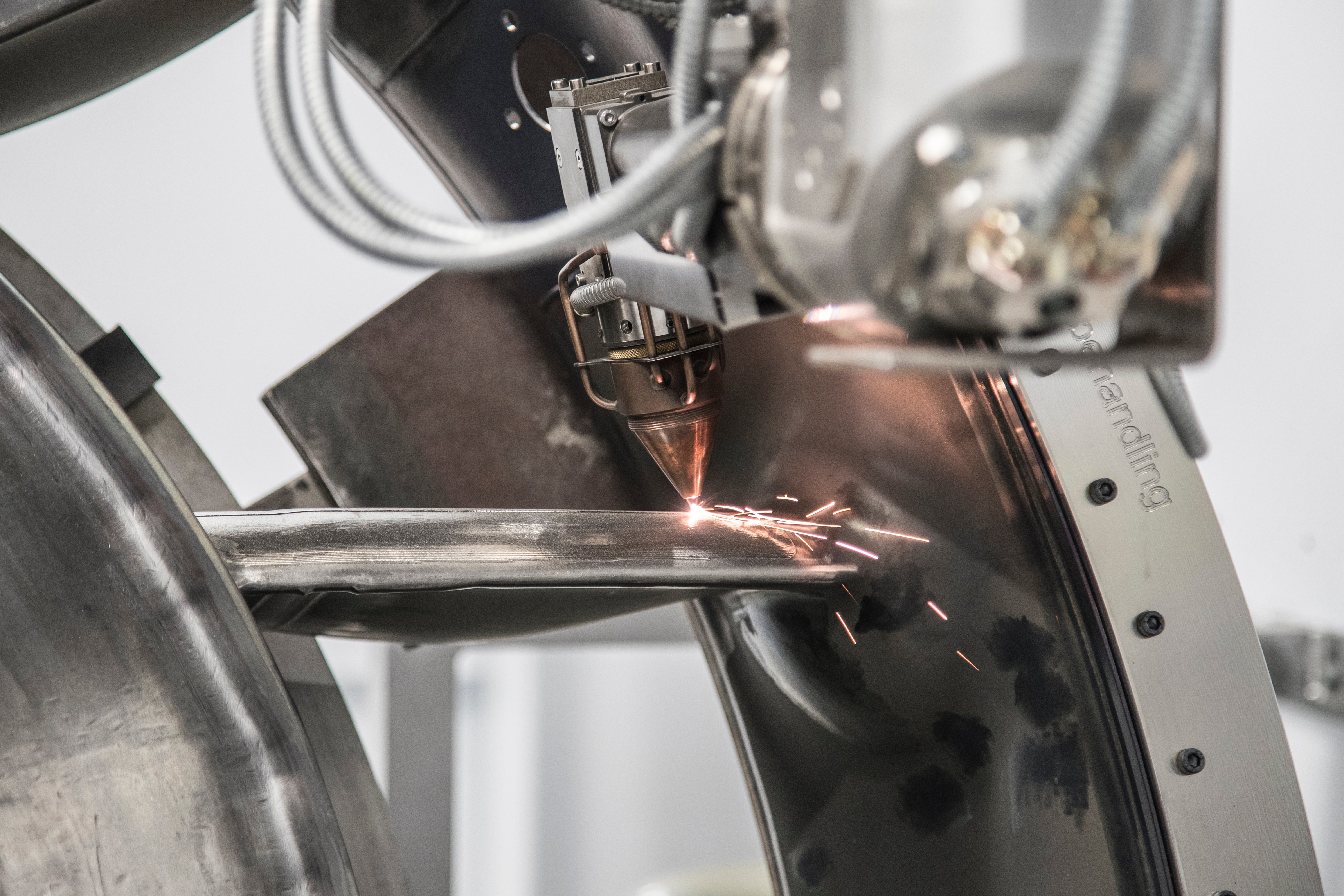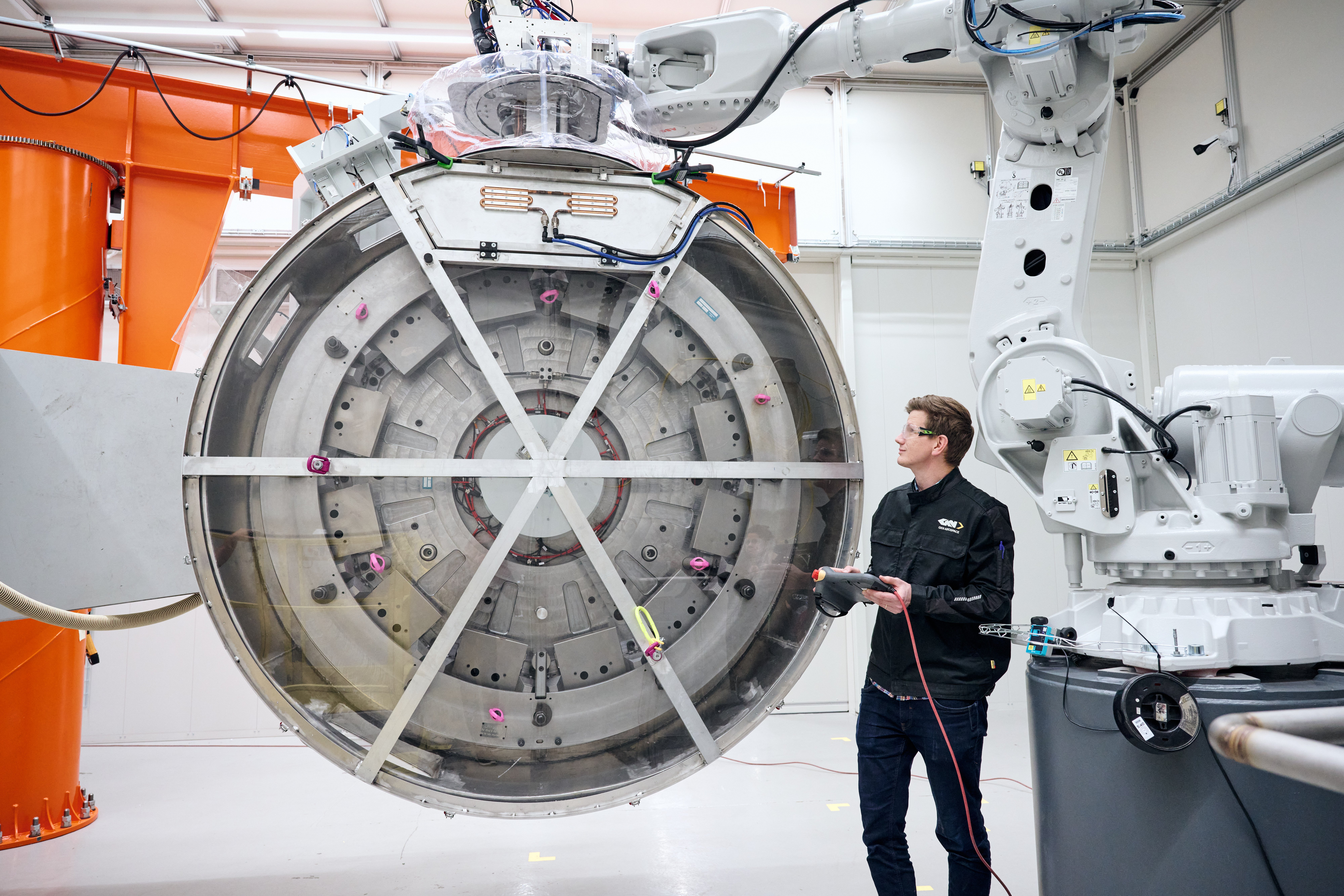Whenever an aircraft takes to the skies anywhere in the world, nine times out of ten it will be fitted with advanced engine components designed and manufactured in Trollhättan, Sweden.
In this thriving engineering hub for the automotive and aerospace industries – located just north of Sweden’s second largest city Gothenburg – a quiet revolution has been taking place behind the factory doors of GKN Aerospace as additive manufacturing, or 3D printing, comes to the fore.
“We’ve spent 20 years researching the potential of additive manufacturing of components while producing many advanced prototypes for both aircraft and space launchers. We’re now ready to scale the technology. Business Sweden was instrumental in guiding our final decision to expand in Trollhättan,” says Robert Hell, External Relations Manager, GKN Aerospace.
NET ZERO AVIATION – A RACE AGAINST TIME
The aviation industry’s largest players (read Airbus and Boeing) are jumping into action to achieve net-zero goals by 2050. Well before then, in 2035, a new generation of aircrafts based on hydrogen propulsion and other low-carbon technologies are scheduled for launch.
The clock is now ticking for GKN Aerospace, a global tier one supplier, to get prepared.
“It typically takes seven years to develop and launch new aircraft designs. This gives us a hard deadline in 2028 for scaling up our additive manufacturing capacity to produce more advanced light-weight components that can also accommodate hydrogen,” Robert continues.
Two additional factors, he points out, prompted GKN Aerospace to embrace additive manufacturing: supply chain issues with foundries in conventional metal casting, and the fact that 3D printing machines have reached a new level of maturity.
“The main challenge with additive manufacturing in the past was production speed. We now believe those days are finally behind us.”

TAILORED SUPPORT FOR NEW CENTRE OF EXCELLENCE
While GKN Aerospace’s engineers in Sweden were trailblazers for the company’s gradual adoption of additive manufacturing (3D printing) at lab-scale, the decision to ramp up in Trollhättan was in no way a foregone conclusion.
“Our management needed to make an informed decision about where to set up a new centre of excellence which would also function as a pilot plant,” Robert adds.
This meant carefully weighing all options in terms of sub-suppliers and future skills supply but also available government support in the 12 countries where GKN Aerospace already has facilities.
By partnering with Business Sweden, GKN Aerospace gained a trusted advisor throughout the evaluation process, backed up by a project team that included Vinnova (Sweden’s innovation agency), the Swedish Energy Agency, Position Väst, Västra Götaland Region, Trollhättan City Council representatives and academia.
FLYING THE FLAG FOR TROLLHÄTTAN
Robert Hell underscores that Business Sweden and its partner agencies were always on hand to help develop the investment case and keep analysis, information and contacts flowing smoothly on a running basis.
“On the one hand, we recognise the importance of locating the new facility in close proximity to our R&D, but we also want to be close to our main customers including engine manufacturers General Electrics and Pratt & Whitney. It was a balancing act at every step,” he explains.
“The collaboration enabled us to meet a wide range of needs and together fly the flag for Trollhättan. Business Sweden acted as a single point of contact and facilitator. They helped us put together the strategy and map out key stakeholders.”
Via the government programme Industriklivet (The Industrial Leap) run by the Swedish Energy Agency and support from the EU Recovery and Resilience Facility RRF, GKN Aerospace obtained a EUR 13.5 million grant against the backdrop of the project’s environmental benefits.

WORLD CLASS COMPETENCE IN SWEDEN
The impact of adopting both laser metal deposition and powder bed fusion is “game-changing”, as Robert puts it, given that raw material consumption is reduced by up to 80 per cent. And he is convinced that the best competence for both these technologies is today found in Sweden.
Beyond Sweden’s obvious advantages, Robert and the GKN Aerospace team needed to present a competitive business case and remove any doubts and potential hurdles.
“Business Sweden’s coordination efforts were invaluable in this regard. Together with the regional partner agencies, they gave us the right support at exactly the right time. This made all the difference in the end,” he concludes.
The stage is now set for GKN Aerospace’s new landmark facility. Production at the centre of excellence for additive manufacturing will begin during 2024 and is expected to result in 150 new jobs for operators, technicians and engineers in Trollhättan over the next few years.
ABOUT GKN AEROSPACE
GKN Aerospace is a leading global tier one supplier of airframe and engine structures, landing gear, electrical interconnection systems, transparencies, and aftermarket services.
The company is headquartered in Birmingham, United Kingdom, and has facilities in 12 countries in Europe, Americas and Asia-Pacific, with 16,000 employees and 33 manufacturing locations.
Since 1930, GKN Aerospace has manufactured engine systems and components in Trollhättan, Sweden, where it employs 2,100 skilled technicians and engineers.





